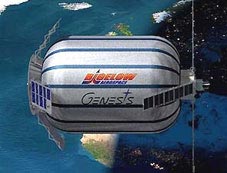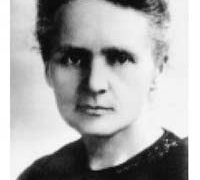 On July 12, the inflatable spacecraft Genesis I (pictured) – regarded as the foundation for future space hotel models – was successfully launched from southern Russia. Launched by a Dnepr rocket (an improved version of the intercontinental ballistic missile from the Cold War), Genesis I is expected to reach an orbit approximately 550 kilometers above Earth, with an inclination of 64 degrees toward the equator.
On July 12, the inflatable spacecraft Genesis I (pictured) – regarded as the foundation for future space hotel models – was successfully launched from southern Russia. Launched by a Dnepr rocket (an improved version of the intercontinental ballistic missile from the Cold War), Genesis I is expected to reach an orbit approximately 550 kilometers above Earth, with an inclination of 64 degrees toward the equator.
The watermelon-shaped vehicle is designed based on a discarded spacecraft model from the National Aeronautics and Space Administration (NASA). Once it stabilizes in a safe position in orbit, it will inflate to its full size. Genesis I, built by Bigelow Aerospace, is the first spacecraft in a series of experimental vehicles designed to demonstrate the feasibility of inflatable space stations used as hotels in outer space.
Upon launch, Genesis I measures 4.2 meters in length and 1.2 meters in width, and it will expand to twice its width in orbit. It is only one-third the size of the commercial space station prototype that Bigelow plans to send people to. The spacecraft is constructed around a rigid core with two inflatable walls. These walls are made from various materials, including Kevlar, commonly used in bulletproof vests, and Vectran fabric. The walls are designed to be airtight and sturdy enough to withstand impacts from space debris and small meteoroids. When fully inflated, each wall will be 40 centimeters thick.
Genesis I is expected to orbit for 2 to 5 years while scientists test its durability. It will gradually lower its altitude due to atmospheric drag, eventually burning up upon re-entry. It is also equipped with 13 cameras to capture photos and videos of Earth during its operation, as well as the items placed inside, including photos, cards, and toys sent by staff members.
The concept of using inflatable spacecraft is not new; in the 1990s, NASA explored inflatable technology for spacecraft destined for Mars but later abandoned the idea, deeming the technology too costly. Bigelow is currently researching a project to build a private space complex by 2015, with an investment of up to $500 million. The complex is expected to include multiple expandable Genesis-style inflatable spacecraft, interconnected to serve as a hotel or potentially as a scientific laboratory or educational institution. Bigelow also hopes to launch a similar spacecraft named Genesis II next fall. The owner of the popular Budget Suites of America hotel chain plans to launch a total of 6 to 10 test vehicles into orbit before launching the space station, expected as early as 2012.
H.Q


















































